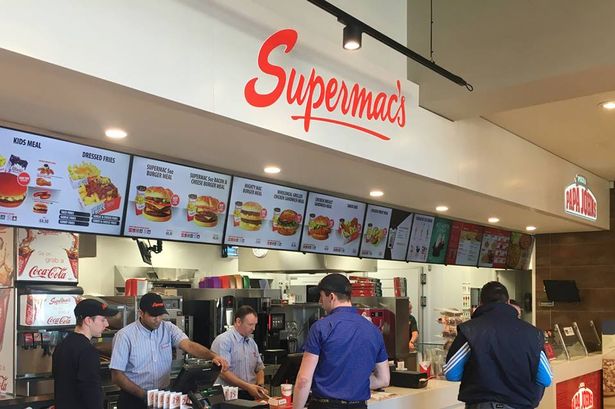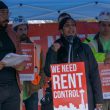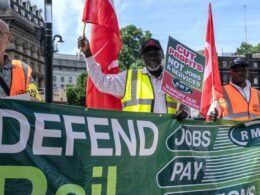By Jonathan Diebold
Multi-millionaire Supermac’s owner Pat McDonagh attacked recipients of the Pandemic Unemployment Payment (PUP), saying it has “caused people to get a bit lazy,” reported RTÉ at the end of November.
In spite of acknowledging reasons like the level of “uncertainty” in the industry and “unsociable hours,” McDonagh admitted to hiring workers from overseas to address staffing shortages, rather than actually tackling these issues. “People realise work-life balance needs to be changed,” he added, “because they feel it was a rat race up until now, and they want to spend more time with the kids and family.”
Arrogance
It is the height of arrogance to admit to providing poor working conditions, and then call people on the PUP “lazy.”
The PUP was an essential measure that the government was forced to take in order to safeguard people’s living standards during the pandemic. It was forced to concede that people cannot survive on the dole rate of €203 per week, demonstrating the genuine burden that unemployment is on people.
That some people now would rather stay on even lower rates of the PUP than work for McDonagh only shows that pay and working conditions must be improved. Many Supermac’s workers receive wages below the living wage, a trend that is widespread in hospitality and other sectors. Ireland has one of the highest rates of low-pay in the EU.
Poor quality jobs
McDonagh, whose business portfolio also includes hotels, travel plazas, and franchising rights for Papa John’s Pizza, joins the ranks of other Irish capitalists lining up to attack workers. The lobbying group ISME (Irish Small and Medium Enterprise Association), for example, have consistently attacked the PUP since its inception. Far from representing the average cornershop, as their name might suggest, ISME represents businesses which employ up to 250 workers, with up to €50 million in annual turnover, and is a stalwart defender of business interests. They, along with others, claim that PUP ‘disincentivises’ people from working, and lobby the government to cut it.
With more of the economy reopening, just over 54,000 workers remain in receipt of the PUP. Most of those workers simply cannot return to work because the pandemic is still here. But for many of those who do remain on it, they do so for the same reason that businesses oppose it: it is an alternative to jobs that offer only low wages and poor conditions, which even if available, are not worth taking. The problem that needs addressing is the quality of jobs and pay, not the meagre PUP.
All reductions in the PUP must be reversed, and all social welfare rates increased. The trade union movement must campaign to demand a €15 minimum wage and wage increases in line with inflation, as well as major reductions and freezes in rents. This would make a difference to the cost of living crisis. The interests of workers, those who create the wealth in our society, not profiteering bosses, must be prioritised.












